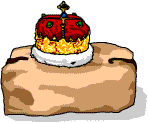Declaration of Arbroath (work in progress)
Created | Updated Feb 11, 2017
 A264403
A264403In 1320 AD The Declaration of Arbroath was drawn up to urge the Pope to recognise Scottish Independence from England
The letter was thought to have been drafted at the scriptorium of Arbroath Abbey by Abbot Bernard on behalf of the nobles and barons of Scotland. The Declaration was sent to Pope John XXII in Avignon.
The Kings of England and Scotland at the time of the Declaration were:
1King Robert the Bruce
2"Let Scotland's warcraft be this: footsoldiers, mountains and marshy ground; and let her woods, her bow and spear serve for barricades. Let menace lurk in all her narrow places among her warrior bands, and let her plains so burn with fire that her enemies flee away. Crying out in the night, let her enemies be on their guard. And her enemies confusion will flee from hunger's sword"
- Born: 1274
- Crowned: 1306 at Scone: A430020
- Died: 1329
Edward II King of England
- Born: 1284
- Crowned: 1307
- Died: 1327 in Berkeley Castle many believe he was murdered.
In 1314 Edward II invaded Scotland only to be defeated by Robert the Bruce at the battle of Bannockburn, which led to Scotland's independence3 until the Act of Union in 1707
The Declaration was one of three letters sent to Pope John XXII, one of which included a letter from King Robert the Bruce, and the other one from four bishops. The letters were taken to Avignon by Adam Gordon
Many people think one of the reason's for the declaration was a ploy by the Scottish Barons to explain and justify why they were still fighting their neighbours, who were about to retake Berwick as an explanation for their actions, however this failed.
It is widely reguarded by many that this declaration was seen as the defining moment in Scottish history, much like the American Declaration of Independence
Some of the Signatories:
4"Yet if he should give up what he has begun, and agree to make us or our Kingdom subject to the King of England or the English, we should exert ourselves at once to drive him out as our enemy and a subverter of his own rights and ours, and make some other man who was well able to defend us our King, for, as long as but a hundred of us remain alive, never will we on any conditions be brought under English rule. It is in truth not for glory, nor riches, nor honours that we are fighting, but for freedom- for that alone, which no honest man gives up but with life itself."
The Declaration of Arbroath